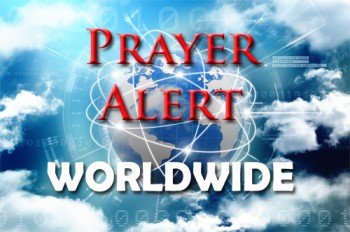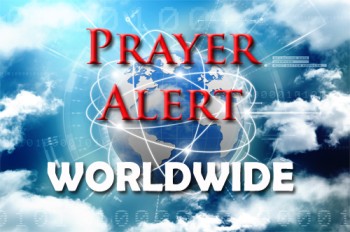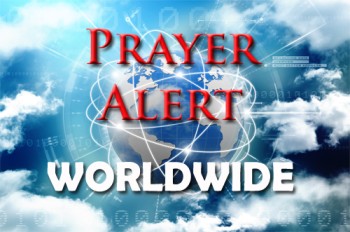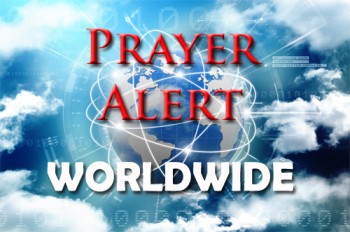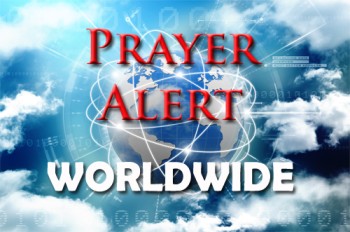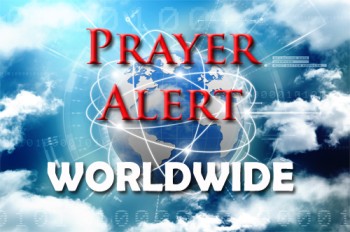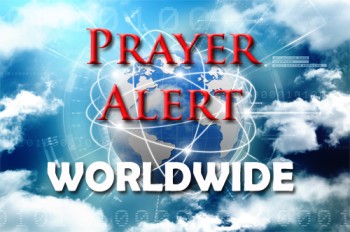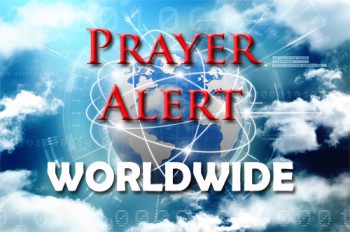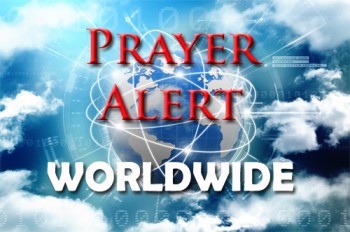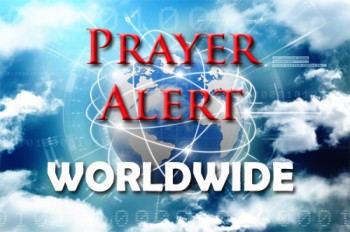Displaying items by tag: Latin America
Argentina: Milei under threat of impeachment for possible cryptocurrency scam
Opposition politicians are calling for president Javier Milei's impeachment following his endorsement of the $Libra cryptocurrency on social media. He claimed it would boost Argentina’s economy by supporting small businesses. The coin immediately soared in value but later plummeted, prompting accusations of a ‘rug pull’ or fraud. Milei later deleted his post, claiming he was unaware of the project's details, but many have called for his removal from office, accusing him of being involved in the development of the scam. Legal action is being pursued, and federal prosecutors are investigating whether Milei committed fraud or criminal association. Cryptocurrency has exploded in Argentina in recent years, amid a decades-long economic crisis and soaring inflation rates. Analysts have warned that the crisis could damage Milei’s reputation as a custodian of economic recovery – and an anti-corruption president – ahead of mid-term elections later this year.
Ecuador: presidential election heads for runoff
Ecuador’s presidential election is headed for a runoff on 13 April. With 80% of the votes counted in the first round, incumbent president Daniel Noboa has secured 44.4%, and opposition candidate Luisa Gonzalez 44.1%. Gonzalez, a protégé of former president Rafael Correa, saw a surge in support, surprising analysts: Noboa, a wealthy businessman who took office 14 months ago, had hoped to avoid a runoff by winning outright. His tenure has been marked by an aggressive crackdown on violent crime, deploying the military and declaring a state of emergency. Supporters praise his strong-handed approach, but human rights groups allege abuses. As Ecuador faces economic uncertainty and a growing security crisis, the nation remains divided.
Colombia: confrontation between Petro and Trump
When president Gustavo Petro blocked US deportation flights in protest of the treatment of migrants, Donald Trump at once threatened severe tariffs and revoked visas for Colombian officials. Petro initially resisted but ultimately relented, allowing deportation flights to resume. This misstep weakened his administration, leading to the Liberal Party’s exit from the coalition government and raising concerns over the country’s foreign policy. Petro’s presidency has faced internal and external challenges, including strained US relations over drug policy reforms and closer ties with Venezuela and Cuba. His confrontational stance, while appealing to his base, risks economic consequences. Experts argue that Colombia must develop a more strategic foreign policy beyond depending on the USA. The fallout from this crisis may shape Petro’s influence in the 2026 elections, as he seeks to position himself as a defender of national sovereignty amid political uncertainty.
Peru: Pope Francis dissolves Catholic movement
Pope Francis has dissolved the Sodalitium Christianae Vitae (SCV), a Peruvian-based Catholic movement, after a Vatican investigation exposed years of abuse by its founder, Luis Figari, and other leaders. The probe revealed sexual, spiritual, and financial abuses, along with misuse of church funds. The SCV, founded in 1971 as a conservative reaction to liberation theology, once had 20,000 members across South America and the USA. Victims accused Figari of sodomy, psychological abuse, and exploitation. After failed reforms, Francis ordered an investigation which uncovered systemic abuses. Figari and ten top members were expelled, but calls for reparations remain unanswered. Victims praised the dissolution as a step toward justice.
Colombia: army deployed to counter gang warfare
Colombian special forces have been deployed to the conflict-ridden Catatumbo region to counter renewed violence between armed rebel groups, the National Liberation Army (ELN) and dissident factions of the Revolutionary Armed Forces of Colombia (FARC). The groups, vying for control of lucrative drug routes, have ended a truce, resulting in over 100 deaths and displacing more than 20,000 people. About a thousand refugees have fled to Venezuela, while others remain trapped or kidnapped amid the chaos. President Gustavo Petro has declared a state of emergency and suspended peace talks with the ELN, accusing them of war crimes. The Catatumbo region, producing 15% of Colombia's coca crop, remains a flashpoint for organised crime. The recent unrest revives memories of Colombia’s decades-long civil war, which claimed 450,000 lives. The UN has called for an immediate halt to the violence and protection for civilians, as military forces move to reestablish state control in affected areas.
Venezuela: opposition leader’s son-in-law kidnapped
Opposition leader Edmundo Gonzalez has reported the kidnapping of his son-in-law, Rafael Tudares, by hooded men in Caracas. He was intercepted while taking his children to school and remains missing. In the July 2024 presidential election, despite pre-election polls favoring Gonzalez, Venezuela’s electoral authority declared Maduro the winner without releasing detailed vote tallies, which fuelled protests across the country. In the crackdown that followed, 23 people were killed and 2,000 detained. Though many detainees have since been released, accusations of human rights abuses, including torture and arbitrary arrests, persist. Gonzalez, exiled in Spain and facing Venezuelan charges of conspiracy and document falsification, continues to challenge Maduro’s legitimacy. The international community remains divided on how to respond: one key question is what Donald Trump’s attitude will be. See
Celebrating the 25th anniversary of Panama Canal transfer
On 31 December Panama celebrated the 25th anniversary of reclaiming the Panama Canal from US control. President José Raúl Mulino has rejected recent comments by Donald Trump suggesting that the USA might try to reclaim it; he commented, ‘(It) will stay in our hands for ever’. The transfer of the canal in 1999, ending 85 years of US administration, was hailed as a landmark moment in Panamanian sovereignty. The canal, which remains a crucial global shipping route, is vital to the country’s economy, accounting for about 20% of its annual revenue. Challenges emerged in 2023 as droughts reduced transit capacity, forcing higher shipping fees. Although operations have normalised since then, price increases are anticipated next year.
Brazil: Lula’s health scare causes problems for the country’s left wing
President Luiz Inacio Lula da Silva’s recent health scare has raised questions about his political future and Brazil’s left-wing leadership. At 79, Lula has undergone emergency surgery in São Paulo after a fall at home led to a cranial hemorrhage. His health issues, coupled with his central role in negotiating key policies, have cast uncertainty over the future of his minority government, which is grappling with essential reforms in spending cuts and tax policies. There are also concerns over his ability to run for reelection in 2026, with the Workers Party lacking a clear successor. He has said that he would like to see a political ‘renovation’ in the next election, but if his candidacy is required to defeat the far right, then ‘obviously I'll be ready to run’. Analysts believe the party is unprepared for a future without his leadership; the failure to develop new leaders has made it challenging for it to gain traction in recent elections.
Nicaragua: prominent bishop forced into exile
Daniel Ortega’s government has forced Bishop Carlos Enrique Herrera Gutiérrez, president of Nicaragua’s bishops’ conference, to go into exile in Guatemala. He had complained about government officials placing loudspeakers outside a church during Sunday Mass, and also called the actions of the local mayor sacrilegious. CSW sources report that the authorities frequently play loud music outside churches to disturb religious activities, particularly on Sundays and holy days. After the bishop was arrested, his diocese’s Facebook page was deleted. Religious leaders in Nicaragua face growing hostility, with priests under surveillance and Protestant pastors receiving threats: the government has also seized a prominent Jesuit-run university in Managua. CSW has strongly criticised Ortega’s continued repression of religious freedom, calling for the international community to hold him and his regime to account for their ‘ongoing and systematic violation of human rights’.
Argentina: one dead, several missing as hotel collapses
A tragic hotel collapse in Argentina has claimed the life of an elderly man and left seven to nine individuals missing. The ten-storey building, undergoing renovations, imploded in the early hours, tilting and damaging part of an adjacent structure. Over three hundred workers are conducting a challenging search using sniffer dogs, drones, and specialised equipment to locate survivors. The collapse caused widespread concern as locals described the disaster as sounding 'like a missile’, with nearby residents feeling intense vibrations before the building fell. Rescuers managed to save a 79-year-old woman, guided by her knocking sounds. Authorities said the hotel was operating renovations illegally, prompting the arrest of the foreman and three bricklayers. Meanwhile, anxious family members wait at the site for news of their loved ones.
